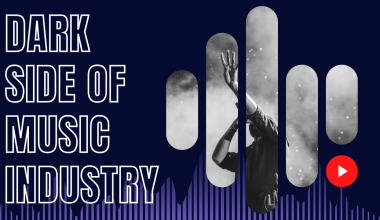The Essence of Music
What is meant by music? At its core, music is more than just sounds arranged in harmony. It is a language that speaks to the soul. Music connects us, comforts us, and inspires us. It has the power to evoke emotions, transport us to different times, and create memories. But how do we truly define music?
Music, simply put, is the art of arranging sounds in a way that is pleasing, meaningful, or expressive. It is a universal phenomenon that transcends cultures and generations. Everyone, regardless of age, language, or background, can feel music’s influence.
As we dive into the depths of what music means, let’s explore its elements, origins, and how it continues to shape our lives today.
What Makes Music So Special?
Music isn’t just a random collection of notes and rhythms. It’s carefully crafted to elicit a response. But why does music feel so special?
At its heart, music combines rhythm, melody, harmony, and dynamics to create something magical. Rhythm provides the beat, melody tells the story, and harmony adds depth. Together, these elements form something far greater than their individual parts.
Think of your favorite song. It might make you feel happy, nostalgic, or even teary-eyed. That’s because music taps into our emotions directly. Neuroscientists believe this is due to music’s ability to stimulate brain regions associated with memory and emotion.
Moreover, music serves as a form of communication. Before words existed, our ancestors used rhythms and sounds to express themselves. This ancient form of expression still resonates with us today.
The Science Behind Music
Ever wondered why certain songs give you chills or make your heart race? The science behind music can explain a lot of these reactions.
When we hear music, our brain releases dopamine—a chemical that makes us feel good. This is why a favorite tune can instantly lift your mood. Additionally, music affects the brain’s auditory cortex, which processes sound, and the limbic system, which governs emotions.
Interestingly, different types of music impact us in unique ways. Classical music can help you focus, upbeat pop songs can energize you, and slow ballads can relax your mind. This is why many people create playlists tailored to specific moods or activities.
Music therapy is another fascinating aspect of the science behind music. For example, therapists use music to help patients recover from trauma, manage stress, and improve mental health. Clearly, the benefits of music go far beyond entertainment.
How Music Has Evolved Over Time
To truly grasp what is meant by music, it’s essential to understand its evolution. Music has been a part of human history for thousands of years.
In ancient times, people used simple instruments like flutes made of bone and drums made of animal skins. These early forms of music often had ceremonial or spiritual purposes. Over time, as civilizations grew, so did the complexity of music.
The Middle Ages introduced Gregorian chants, which were the foundation of Western classical music. The Renaissance and Baroque periods brought about iconic composers like Mozart and Beethoven, whose works are still celebrated today.
Fast forward to the 20th century, and we see the rise of jazz, rock, pop, and electronic music. Each genre brought something new, shaping modern music as we know it. Today, music continues to evolve with the advent of technology and global influences.
Why Music Matters in Everyday Life
Imagine a world without music. No songs on the radio, no tunes to hum, and no melodies to brighten your day. It’s hard to picture, isn’t it? That’s because music is an integral part of our lives.
Whether you’re driving, working out, or celebrating with friends, music is often in the background, enhancing the moment. It serves as a companion, motivating us during tough times and helping us relax after a long day.
Music also has the unique ability to bring people together. Concerts, festivals, and even casual jam sessions create a sense of community. Sharing a love for the same songs can form instant bonds between strangers.
The Emotional Impact of Music
One of the most remarkable things about music is its emotional impact. A single melody can bring back a flood of memories or express feelings that words cannot.
For instance, a cheerful tune can instantly make you feel happy, while a sad ballad might bring tears to your eyes. Music has the power to amplify our emotions, making moments more intense and meaningful.
This emotional connection is why music plays such a big role in events like weddings, funerals, and celebrations. It sets the mood and helps us connect with the occasion on a deeper level.
The Universality of Music
Music is a universal language. No matter where you go in the world, people use music to express themselves and communicate.
Even if you don’t understand the lyrics of a song, you can still feel its mood through the melody and rhythm. This universality is why music is often used to bridge cultural gaps and promote understanding.
Additionally, music has the power to inspire change. Many movements and revolutions have been fueled by protest songs and anthems. These songs resonate with people, giving them a sense of purpose and unity.
Music and Creativity
For many, music is a source of inspiration. It sparks creativity and fuels imagination.
Think about how music influences other art forms. Filmmakers use it to set the tone of a scene, painters listen to it while creating their masterpieces, and writers often find their muse in a beautiful melody.
Music can also help you tap into your creative potential. Whether you’re brainstorming ideas or working on a project, the right playlist can boost your focus and productivity.
Conclusion: Music Is Life
So, what is meant by music? It’s more than just sound—it’s a part of who we are. Music reflects our emotions, connects us with others, and helps us make sense of the world.
From ancient rhythms to modern beats, music has always been a constant in our lives. It’s a gift that transcends time and culture, reminding us of our shared humanity.
Next time you listen to your favorite song, take a moment to appreciate the magic behind the melody. After all, music isn’t just something we hear; it’s something we feel.
For further reading, explore these related articles:
- What is AAC Audio? Full Form, Benefits, and Why It’s Popular
- How to Earn Money on Spotify: A Beginner’s Guide
For additional resources on music marketing and distribution, visit DMT Records Pvt. Ltd..






